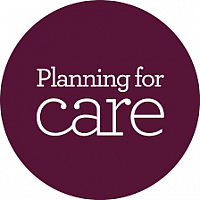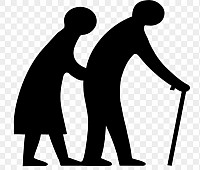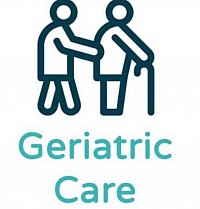Ageing Gracefully: Blogs on Elder Care and Geriatric syndromes- Insights from a Geriatrician in Kerala, India
Care Plans for Elderly Patients
A personalized care plan created to cater to the specific requirements and preferences of an elderly person is known as an aged care plan
This all-inclusive plan takes into account the physical, emotional, and social needs of an elderly person in addition to their overall well-being.
The elderly person themself, family members, and medical professionals including nurses and doctors usually contribute input for the care plan.
Making a flexible plan that appropriately takes into account a person's medical history, current state of health, and personal preferences is the ultimate objective.
A variety of services, including help with everyday tasks, medication administration, physical therapy, social activities, and medical care, may be included in the care plan. To guarantee that the patient gets the best care possible, collaboration with other agencies and healthcare specialists may also be necessary.
When a person's needs change over time, an aging care plan can be modified as necessary. The older person's health and well-being are usually monitored through regular assessments, and any necessary modifications to the care plan are made.
Problem of Polypharmacy
Polypharmacy- overuse of medication without a rationale
More common in elderly people due to chronic diseases and multiple medications
Problem with polypharmacy includes overdose, side effects, complications of diseases
Tips to avoid Polypharmacy:
> Be under the care of a Primary care Doctor (whom you trust)
> Do not hesitate to clarify your doubts regarding medication use with doctor before leaving the clinic
> You should be aware of the medications you are taking and why (you can ask the Doctor/ Pharmacist who can help you)
> Avoid un necessary medications like over the counter drugs without knowledge of your doctor
> If you suspect any newly added medication is causing trouble, get in touch with your doctor at the earliest
> It is advisable to take your MEDICATION BOX on every Doctor visit, so as to make sure you are on right medications
Care giver stress: Identify and manage
Caregiver stress is a common challenge faced by individuals who take care of elderly patients.
Tips to reduce Care giver stress
> Recognize that feeling worn out or frustrated when providing care is completely natural and that there is no reason to feel guilty about such feelings.
> Ask for help; you could find someone who can assist you waiting to hear from you.
> Share your feelings with someone who can understand you
> Take regular breaks from care giving: arrange for someone trustworthy to take over temporarily.
> Maintain your health: take proper food and medications, get good sleep.
> Set realistic expectations: Recognize that you're only human and that you may not be able to do everything perfectly.
> Accept help: Don't hesitate to accept help from others.
> Learn about the medical conditions or challenges your loved one is facing. Understanding their needs and how to address them can help reduce stress and improve the quality of care you provide.
> If caregiver stress becomes overwhelming, don't hesitate to seek help from mental health professionals or therapists. They can provide guidance and coping strategies
Remember, taking care of yourself is not selfish but necessary for your own well-being and ability to continue providing care for your loved one.
Caring a patient with Dementia
Dementia care for the elderly involves providing support and assistance to individuals who have been diagnosed with dementia, a progressive neurological condition that affects memory, thinking, behavior, and the ability to perform daily activities. Here are some important aspects of dementia care for the elderly:
1. Communication: Effective communication is crucial when caring for individuals with dementia. Use clear, simple language, maintain eye contact, and speak slowly. Allow time for the person to process information and respond. Non-verbal cues, such as facial expressions and body language, can also help convey your message.
2. Routine and structure: Establishing a daily routine and structured environment can help individuals with dementia feel more secure and reduce anxiety. Stick to regular schedules for meals, activities, and sleep, as this can provide a sense of familiarity and stability.
3. Safety: Ensure the safety of individuals with dementia by removing potential hazards from their environment. Install safety devices like handrails, grab bars, and non-slip mats. Secure cabinets containing dangerous items, such as cleaning supplies or medications. Consider using door alarms or GPS tracking devices to prevent wandering.
4. Memory aids: Use memory aids, such as calendars, clocks, and pill organizers, to help individuals with dementia remember important information and daily tasks. Visual cues and reminders can assist in promoting independence and reducing confusion.
5. Medication management: It's essential to manage medication properly for individuals with dementia. Organize medications in a clear and understandable way, and consider using medication reminder systems. Consult with healthcare professionals to ensure the correct dosage and timing of medications.
6. Emotional support: Provide emotional support and reassurance to individuals with dementia. They may experience frustration, confusion, or mood swings due to the condition. Be patient, empathetic, and understanding. Engage in activities that promote emotional well-being, such as reminiscing, listening to music, or engaging in hobbies the person enjoys.
7. Social interaction: Encourage social interaction and engagement with others. Social activities, such as group discussions or participation in community programs specifically designed for individuals with dementia, can help combat feelings of isolation and maintain cognitive function.
8. Nutrition and physical activity: Ensure a well-balanced diet for individuals with dementia, as nutrition plays a vital role in overall health. Encourage regular physical activity, such as walking or gentle exercises, as it can improve mood, sleep, and cognitive function.
9. Caregiver support: Caring for someone with dementia can be challenging. Seek support from healthcare professionals, support groups, or respite care services to help alleviate caregiver stress. Taking care of your own physical and emotional well-being is essential to provide the best care possible.
10. Regular medical check-ups: Schedule regular medical check-ups for individuals with dementia to monitor their overall health and address any emerging concerns. Regular assessments can help in adjusting treatment plans and providing appropriate care.
Remember that dementia affects each person differently, so it's important to tailor the care approach to the individual's specific needs and preferences. Consulting with healthcare professionals and specialists in dementia care can provide additional guidance and support in providing the best possible care for elderly individuals with dementia.
Problem of Constipation in elderly: its causes and management
Constipation is a common concern among the elderly population. It is defined as having infrequent bowel movements or difficulty passing stool. While occasional constipation can happen to anyone, older adults are more prone to experiencing chronic constipation due to various factors such as diet, reduced physical activity, medication use, and age-related changes in the digestive system. Here are some key points to consider regarding constipation in the elderly:
1. Causes: Several factors contribute to constipation in the elderly. These include a low-fiber diet, inadequate fluid intake, lack of physical activity, side effects of medications (such as pain medications, diuretics, or certain antidepressants), underlying medical conditions (like hypothyroidism or diabetes), and anatomical or structural abnormalities in the digestive tract.
2. Symptoms: The primary symptom of constipation is infrequent bowel movements, typically fewer than three times per week. Other symptoms may include straining during bowel movements, hard or lumpy stools, a feeling of incomplete evacuation, abdominal bloating or discomfort, and sometimes even rectal bleeding or anal fissures caused by straining.
3. Prevention: Lifestyle modifications can help prevent constipation in the elderly. Encouraging regular physical activity, consuming a fiber-rich diet (whole grains, fruits, vegetables, and legumes), maintaining adequate fluid intake, and establishing a regular toilet routine can be beneficial. It is also essential to address any medication-related causes and consult with healthcare professionals if adjustments or alternatives are possible.
4. Treatment: Treatment for constipation in the elderly often involves a combination of lifestyle changes and medications. Increasing dietary fiber intake through food or supplements can help soften the stool and promote regular bowel movements. Over-the-counter laxatives, such as bulk-forming agents, stool softeners, osmotic laxatives, or stimulant laxatives, may be used on a short-term basis, but their prolonged use should be monitored by a healthcare professional. In some cases, prescription medications or interventions like enemas or suppositories may be required.
5. Medical evaluation: If constipation persists despite lifestyle changes and over-the-counter remedies, it is important for elderly individuals to seek medical evaluation. A healthcare professional can conduct a thorough assessment, review medication regimens, and order relevant tests (such as blood work, imaging, or colonoscopy) to identify underlying causes or rule out more serious conditions.
6. Care considerations: Elderly individuals with constipation should be treated with care and empathy. It is crucial to encourage open communication about bowel habits, address any mobility or cognitive issues that may impact toileting, and ensure a supportive environment in terms of privacy, safety, and accessibility to bathroom facilities
House call programme: Home visit by Doctor for elderly patients
A home visiting doctor, also known as a house call doctor, is a medical professional who provides healthcare services to patients in their own homes. Instead of patients going to a clinic or hospital, the doctor travels to the patient's residence to deliver medical care.
Home visiting doctors can provide a wide range of medical services, including routine check-ups, management of chronic conditions, medication management, wound care, and palliative care.
The concept of home visiting doctors is not as common as it once was, as the majority of healthcare services are now provided in clinical settings. However, there are still areas and specific patient populations where home visits are beneficial or necessary. Some of the benefits of home visiting doctors include:
1. Convenience: Home visits eliminate the need for patients to travel to a healthcare facility, particularly for those with limited mobility, chronic illnesses, or transportation challenges.
2. Personalized care: Home visits allow doctors to have a more comprehensive understanding of a patient's living environment and lifestyle, which can inform their diagnosis and treatment plan. The doctor can provide more personalized and patient-centered care.
3. Continuity of care: For patients with complex medical conditions, a home visiting doctor can provide ongoing care and monitoring in their familiar environment. This can help promote better health outcomes and reduce hospital readmissions.
4. Comfort and reassurance: Some patients, especially those with severe illnesses or nearing end-of-life, find comfort in receiving medical care in the comfort and privacy of their own homes. It can provide a sense of familiarity and reduce stress associated with medical settings.
If you are interested in accessing the services of a home visiting doctor, it is best to check with local healthcare providers, clinics, or hospitals in your area.
Services Offered in Geriatric Clinics: Making Elder Care Easier
Geriatric Clinics are dedicated to providing comprehensive and specialized care for older adults, ensuring their well-being and quality of life. Experienced healthcare professionals are committed in addressing the unique healthcare needs and challenges that come with aging.
Geriatric Assessments: Comprehensive evaluations to assess the overall health, functional abilities, and cognitive status of elderly patients. These assessments helps to develop personalized care plans and identify any potential health risks or conditions.
Chronic Disease Management: Geriatricians specializes in managing chronic conditions that commonly affect older adults, such as hypertension, diabetes, arthritis, and heart disease. Geriatricians work closely with patients to develop effective treatment strategies and promote healthy living.
Medication Management: Geriatricians perform thorough medication reviews, ensuring that patients receive the appropriate medications, doses, and schedules and takes steps to avoid polypharmacy and medication related side effects.
Memory Care: Specialized memory care services are offered for individuals with dementia, Alzheimer's disease, and other cognitive impairments.
Fall Prevention: Falls are a significant concern for older adults and can lead to severe injuries. Fall risk assessments, home safety evaluations, and personalized exercise programs to improve strength, balance, and mobility, reducing the risk of falls and enhancing overall safety.
Palliative Care: Palliative care service focuses on improving the quality of life for patients with serious illnesses. Comprehensive pain and symptom management, emotional support, and coordination of care are provided to ensure patients receive the comfort and dignity they deserve.
At our Geriatric Clinic, we are dedicated to promoting healthy aging and enhancing the overall well-being of older adult patients. Our comprehensive services, experienced team, and patient-centered approach make us a trusted choice for geriatric care. Contact us today to schedule an appointment or learn more about our services.
What is Palliative care?
Palliative care is specialized care provided to patients with terminal illness which focuses on providing relief from symptoms and stress of underlying disease rather than curing it. The goal of palliative care is to improve quality of life for both patient and family.
Palliative care is based on the needs of the patient rather than stage of the disease or prognosis of the patient. It can be provided along with curative treatment for relieving stress from disease. Palliative care can be provided for terminal illness like cancer, congestive heart failure, COPD, kidney disease, Alzheimer’s disease etc.
Common symptoms which proper palliative care can improve include pain, depression, shortness of breath, fatigue, constipation, nausea, loss of appetite, difficulty sleeping and anxiety. Recent studies have shown that patients with a serious illness who received palliative care were more comfortable at the end.
To know more about out palliative care service follow this link:https://geriatrickerala.simdif.com/palliative_care.html
What is Senior citizen's clinic? What does a Geriatrician do?
Senior citizens clinic is a Geriatrician run facility which caters to the medical needs of elderly patients in and around Changanacherry.
Geriatric medicine is the medical speciality that deals with the care of elderly patients. Aging and age related problems require a specialized approach considering all aspects of the patient for a successful outcome.
Elderly patients require not only treatment for their medical problems, but also consideration of psychosocial aspects.
Elderly patients often have multiple health problems and they may be taking a lot of medications for different ailments. Geriatrician acts as a moderator in the coordination of care of the elderly patients. Geriatrician assures that best treatment is provided to the elderly patient by identifying problems and prioritizing each one for management. Geriatrician can act as the primary care provider for a patient and get specialist's opinion as and when needed.
Data show that elderly patients managed by a Geriatrician were more satisfied with medical care as well as treatment expenses were also less.






